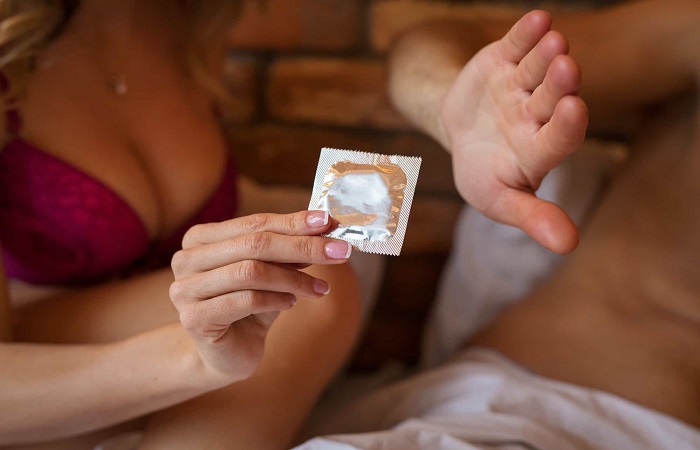The morning-after pill, also known as the morning-after pill or emergency pill, is a contraceptive method that has become very popular. This is used when the usual protection method has failed, for example, when the condom breaks, and as an alternative to avoid an unwanted pregnancy when unprotected intercourse has taken place on fertile days.
Despite being, as its name suggests, an emergency option, many women take it regularly, which puts their health and well-being at risk. If you wonder how often to take the morning after pill and why it is important not to overdo it, in this Fastlyhealarticle, we will clarify it for you in detail.
Table of Contents
How does the day-after pill work?
The emergency or morning-after pill only has two tablets with high hormonal loads. This method effectively prevents pregnancies between 75 and 89% as long as it is administered correctly and follows the instructions on the package insert.
The morning after pill is NOT abortifacient. Therefore, it cannot cause the pregnancy to be interrupted once the fertilized egg has been implanted in the uterus. However, if it is taken in the first 24 hours after sexual intercourse risk and up to 72 hours after it, it works as follows:
- It prevents and delays ovulation so that the egg cannot be fertilized.
- It makes the cervical mucus thicker to make it harder for sperm to pass through.
- If the egg has been fertilized, the pill will make it difficult for it to implant in the uterus walls.
In which cases can I take the morning after pill?
As its name makes clear, this method is an emergency solution that should only be administered in specific cases, for example:
- When the condom to be used breaks or remains inside the vagina.
- When we forget to take a contraceptive pill.
- Suppose we believe that we may have missed the contraceptive pill due to severe diarrhea or vomiting. In this case, it is much more recommended to opt for the condom, but some prefer the emergency pill.
- By having unprotected sex during the fertile days.
It is essential to clarify that this method does not protect against sexually transmitted diseases, which can only be achieved with a condom. For this reason, its use is not recommended in casual sexual encounters.

How often can I use the emergency pill?
One of the questions that women who have resorted to this alternative ask the most is how often they can take the morning-after pill. The first thing you should know is that this is not a monthly contraceptive method and that it should not be taken frequently because you would be putting your health at risk.
These tablets have a high hormonal load that allows all the effects mentioned above to prevent a possible pregnancy, so those women who take the emergency pill several times in the same menstrual cycle run a high risk of cardiovascular accidents. And various health complications that we will explain later.
No more than one dose (consisting of two pills) should be taken per month, and many specialists indicate that the amount should not exceed two doses per year. Remember that this is an emergency solution and that if you plan to have sex frequently, you should resort to more adequate contraceptive methods.

What if I use it too often?
If you are one of those who take the morning after pill for anything, you should know that you are putting your health in danger. To begin with, this method has less efficacy than other safer ones such as birth control pills or condoms, but in addition, if taken frequently, they can increase the risk of suffering from:
- Heart attacks and cardiovascular accidents.
- Significant coagulation problems.
- Pulmonary embolism.
- Stroke.
- Deep venous thrombosis.
The risk of developing these conditions increases if you smoke, have diabetes, have high cholesterol, or are obese.
What are the side effects of the morning-after pill?
In addition to the risks of frequently taking the morning after pill, we have risk-specific side effects due to their high progesterone content when we ingest these pills.
Side effects of the emergency pill are:
- Headache.
- Sickness.
- Vomiting.
- Delayed menstruation is one of the most common effects.
- The advance of the rule.
- Bleeding is not related to menstruation.
- Heavy bleeding in the period.
- Spots on the skin.
What birth control methods can I use instead?
If you have sex frequently or sporadically but want to be protected without risking your health, the best contraceptive alternatives are:
- The male condom.
- The female condom.
- Birth control pills.
- Contraceptive patches.
- The diaphragm.
- The IUD.

This article is merely informative. At Fastlyheal.com, we do not have the power to prescribe medical treatments or make any diagnosis. We invite you to go to a doctor in the event of presenting any condition or discomfort.
If you want to read more articles similar to How often to take the morning-after pill, we recommend visiting our Sexuality category.

I am a Surgeon with a diploma in comprehensive ultrasound and surgical care residency, an area I am specializing in. During the exercise of my profession, I have realized the need for patients to know the diseases they suffer, and I can tell you that a large part of their complications is due to a lack of information. Being a health web writer allows me to transmit my experience, without borders, to all those readers eager for knowledge, educate them in the prevention of diseases and promote a healthy lifestyle.

